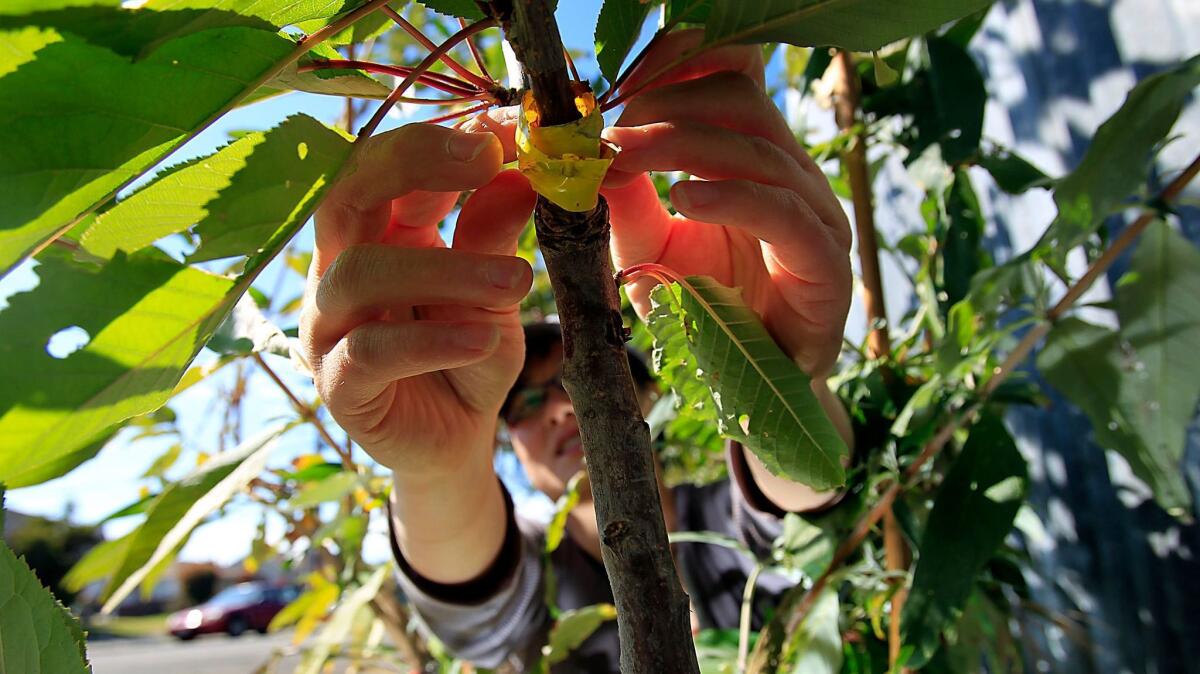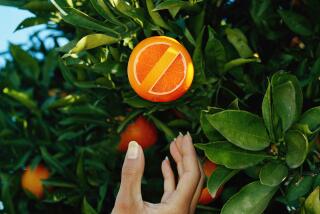The trick to getting even more delicious fruit from your garden

It may be the season for cold and rain, but this is the perfect time for grafting different varieties onto your deciduous fruit trees.
The Foothill chapter of the California Rare Fruit Growers is having its annual Scion Exchange event Feb. 4 at the Arboretum in Arcadia.
For the record:
11:55 a.m. Jan. 26, 2017This story has been updated to make clear that while the workshop is free, there is a $9 Arboretum admission fee for adults.
Free with Arboretum admission and open to the public, the gathering brings together backyard growers with unusual and sometimes rare samples of live scion wood. (Scions are growing shoots with dormant buds that bear different cultivars when grafted onto rootstock that is compatible.)
There are many reasons to graft. The parent tree may be healthy but have substandard tasting fruit or all of it may get ripe at the same time. Grafting can improve propagation, extend harvests and save space and water.
Martin Koning-Bastiaan, the Foothill chapter president, says getting remarkable fruit is the primary motivation: “Ever had an apricot from a store that’s memorable? I get plums off my tree that are so squishy that you can poke a hole in them and suck out the juice.”
He will give a grafting demonstration on how to get two varieties of plums from one tree. “But you can also go crazy and graft eight varieties onto one tree,” he says.
Besides plums, members will have figs, apricots, peaches, pears, persimmons, mulberries, jujubes, white sapote, cherimoya and paw-paws. Last year there were 20 difficult-to-find varieties of pomegranates courtesy of the UC Davis Wolfskill Experimental Orchard.
Scions should be pencil-sized from year-old growth. Koning-Bastiaan advises using Parafilm M laboratory tape for binding the scion to the rootstock. When the other buds on the parent stop to pop, the ones on the scion should as well.
California Rare Fruit Growers’ Scion Exchange
Where: Los Angeles County Arboretum, Lecture Hall A, 301 N. Baldwin Ave., Arcadia
When: 9:30 a.m. Feb. 4
Info: crfg.org
For an easy way to follow the L.A. scene, bookmark L.A. at Home and join us on our Facebook page for home design and gardening, Twitter and Pinterest.
This family is creating a zero-waste homestead in Altadena with goats, chickens and bees
It’s time to plant your winter vegetable garden
A sprawling South Pasadena lawn gets a chic low-water makeover






